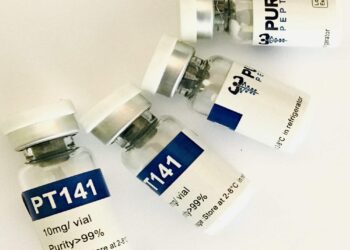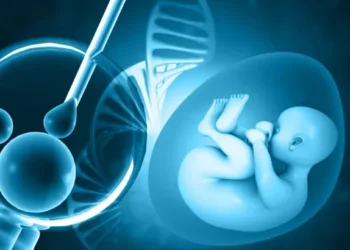Lack of sexual desire is a condition that affects women of all ages and can significantly impact their quality of life. This disorder is typically regarded as part of a larger range of female sexual dysfunction conditions, but the symptoms of this disorder can differ greatly from one person to the next. The disorder is also characterized by a high level of personal distress.
The first step to treat lack of sexual desire is to determine what’s causing it. There are several causes of low libido, including psychological or physical pain. While it’s natural to go through periods of low libido, some conditions can cause a drastic decline. If your lack of desire has been happening for a long time, you may have a medical condition or medication that’s causing the problem. Your doctor can advise you on the best treatment for your specific condition.
Often, low desire is caused by another condition or disorder, and the proper assessment is critical to find the cause. For instance, a woman experiencing low desire could be suffering from PTSD or sexual abuse. Getting the right diagnosis will ensure the most appropriate treatment for her condition. This can help her improve her confidence and relationships.
There are also treatments for men with a lack of sexual desire. These include prescription medications and off-label therapies. Medications that affect estrogen levels can improve libido in some cases. Another medication that may be used to treat this problem is flibanserin (AKA Addyi), a pill that has been approved by the FDA for pre-menopausal women. It works by making the vaginal muscles stronger, which in turn increases blood flow.
There are many different reasons why a woman has a lack of sexual desire. One of these reasons may be that she has poor control of her diabetes. It can affect her ability to have sexual intercourse and interfere with her hormone production. Diabetes can also cause a woman to feel less desire or control over her body.
Other causes of a lack of sex drive include excessive alcohol and recreational drug use. In addition to these factors, many emotional factors can have a negative impact on a person’s desire for sex. Mental health issues and relationship problems can also contribute to low sex drive. Menopause is another cause of low libido.
Another reason for lack of sexual desire may be incompatibility between the two partners. Sexual intimacy should be prioritized in a relationship, so it is important to make sure your needs and partner’s needs are aligned. Use appropriate arousal techniques and encourage foreplay with your partner.
There are a variety of treatment options available for people with a lack of sex drive. Treatment for this disorder will depend on the underlying cause, such as an emotional issue or a physical problem.
Lack of sexual desire in men is often related to relationship problems and other interpersonal factors. Men who are experiencing lack of sexual desire may be unhappy in their relationships and have a hard time finding a partner that they find attractive. Fortunately, there are many ways to overcome a lack of sexual interest in a relationship and regain your zest for intimacy.
Lack of sexual desire can also be due to medical conditions. Many women experience pelvic floor problems or endometriosis, which can affect sex drive. Another common cause of low libido is recurring yeast or bacterial infections of the vagina. It’s crucial to recognize any underlying causes of low libido and address them.
The causes of HSDD vary from individual to individual. In some cases, the lack of sexual desire is a result of a physical condition, such as an illness, low self-esteem, or increased stress. Men and women may also experience a decrease in desire during pregnancy and menopause.
In addition to these factors, some women experience psychological causes of low libido. If the cause is psychological, relationship counseling may be necessary. A team of local men’s health specialists can check hormone levels and blood iron levels to help determine what the cause is. If the cause is medical, a physician can prescribe medications to increase libido.
If the lack of sexual desire is caused by psychological factors, a doctor may recommend counseling or talk therapy for the affected individual. Talk therapy may be beneficial for dealing with relationship concerns and any other conditions that may be causing low sexual desire. Some women may also be treated with estrogen therapy. Estrogen plays an important role in the regulation of libido, and estrogen therapy can help the brain make the proper chemical connections.
Lack of sex drive in women is an extremely common problem that affects many women. It can be caused by many factors, including poor communication, unresolved conflict, or mistrust. It can also be a side effect of medications, such as antidepressants. While the causes are different for each woman, there are some lifestyle changes that can help increase libido in women.
A new type of medication, Flibanserin (also known as Addyi), has been approved by the U.S. Food and Drug Administration (FDA) for the treatment of low sexual desire in premenopausal women. Although it has some side effects, this drug can help women who suffer from this condition increase their desire.
Lack of sexual desire can be caused by low estrogen levels in the body. This causes thinning of the vaginal tissues and reduced blood flow to the genital area. Low estrogen levels can also lead to a decrease in orgasm. In some cases, a woman may suffer from a low testosterone level. Hormonal therapy may be necessary to restore the levels of hormones to normal levels.
Another way to address lack of sexual desire in a relationship is to improve the communication between the two partners. It is vital to discuss sexual desires with your partner to avoid further alienation and repression. Silence is harmful to a relationship’s mental and physical well-being.







